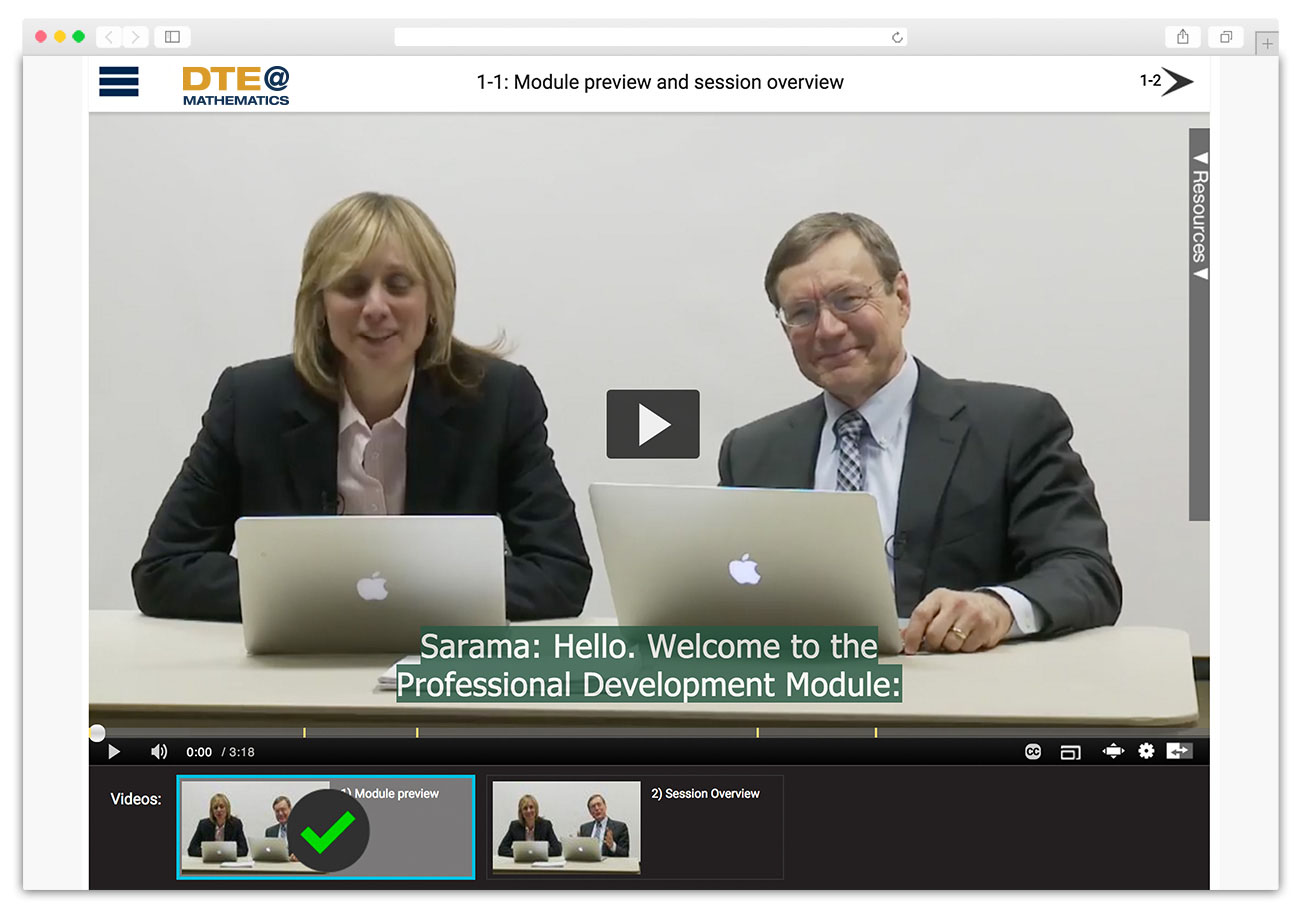Geometric-measurement - Session 1: Length Learning Trajectory – Mathematical goals
Part 1: Module preview and session overview
Overview
This part provides an overview of the module
Each DTE@ module focuses on four core elements of the work of elementary teaching:
- Mathematics geared to the demands of teaching
- Teaching practices for diverse classrooms and contexts
- Student thinking about mathematics
- Learning-from-practice protocols for systematically learning from and improving teaching
Work on these elements is integrated across the ten sessions of a module, providing opportunities to practice, build on, and extend ideas over time. In addition, simultaneously working on the four core elements is important because the work of elementary mathematics teaching requires integrated attention to these elements in practice.
The content of this module – Geometric Measurement and Spatial Reasoning in Elementary Mathematics Teaching – focuses on:
- Mathematics: understanding length, area, and volume measurement, spanning grades pre-K to 6
- Student thinking: trajectories for noticing students’ development of measurement knowledge and skills
- Teaching: enhancing skills with formative assessment and task/curriculum analysis
- Learning from practice: studying teaching and learning of geometric measurement through anecdotal notes and video
Geometric measurement and spatial reasoning are important topics in elementary mathematics. In the Common Core State Standards, students in grades kindergarten through 5 are expected to develop understanding of and skill with length measurement, area measurement, and volume measurement. Geometric measurement is also a very productive context though which students develop skill with mathematical practices. This module focuses on developing the knowledge and skills teachers need to help their students develop rich and usable understandings of geometric measurement.
